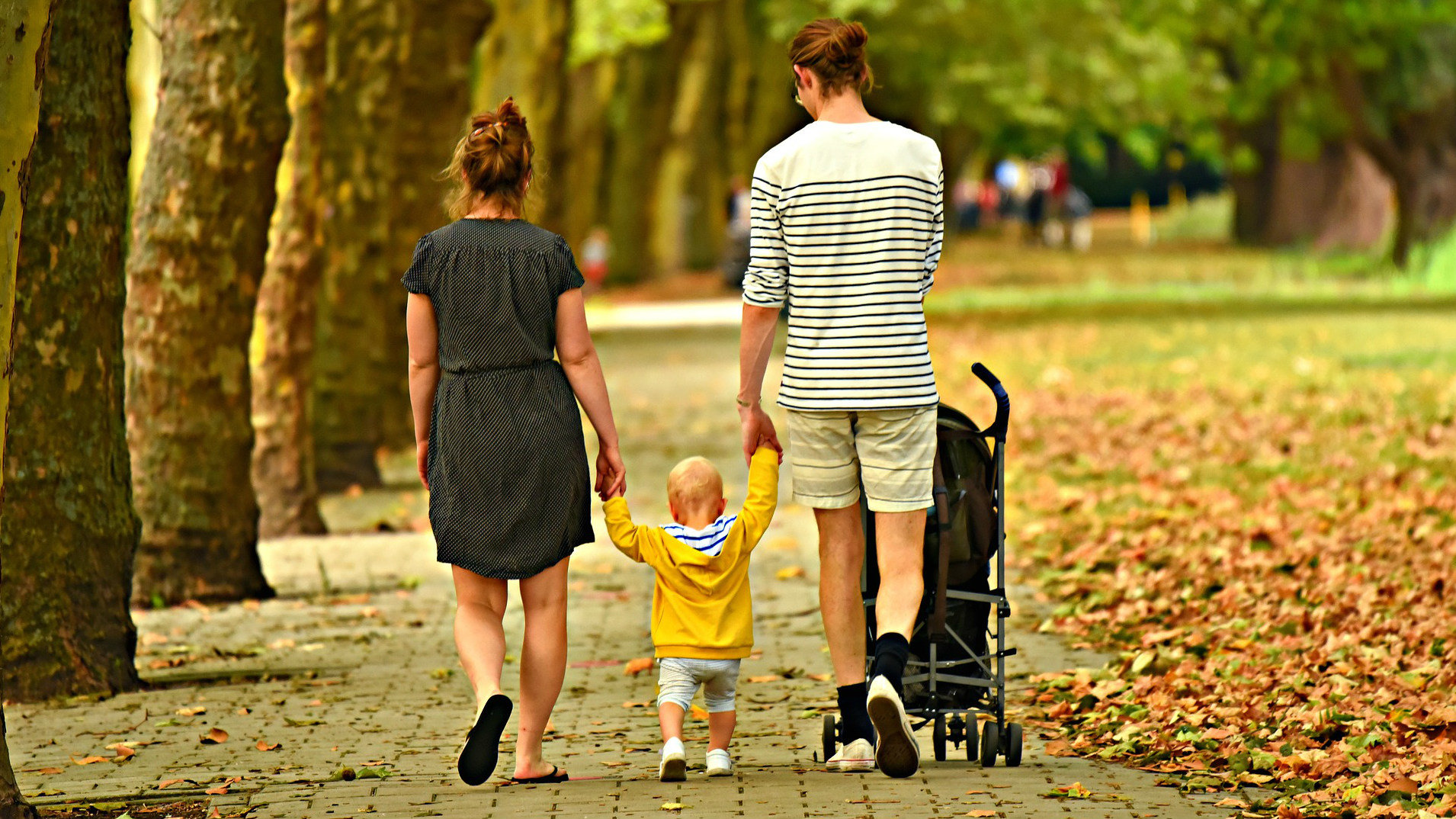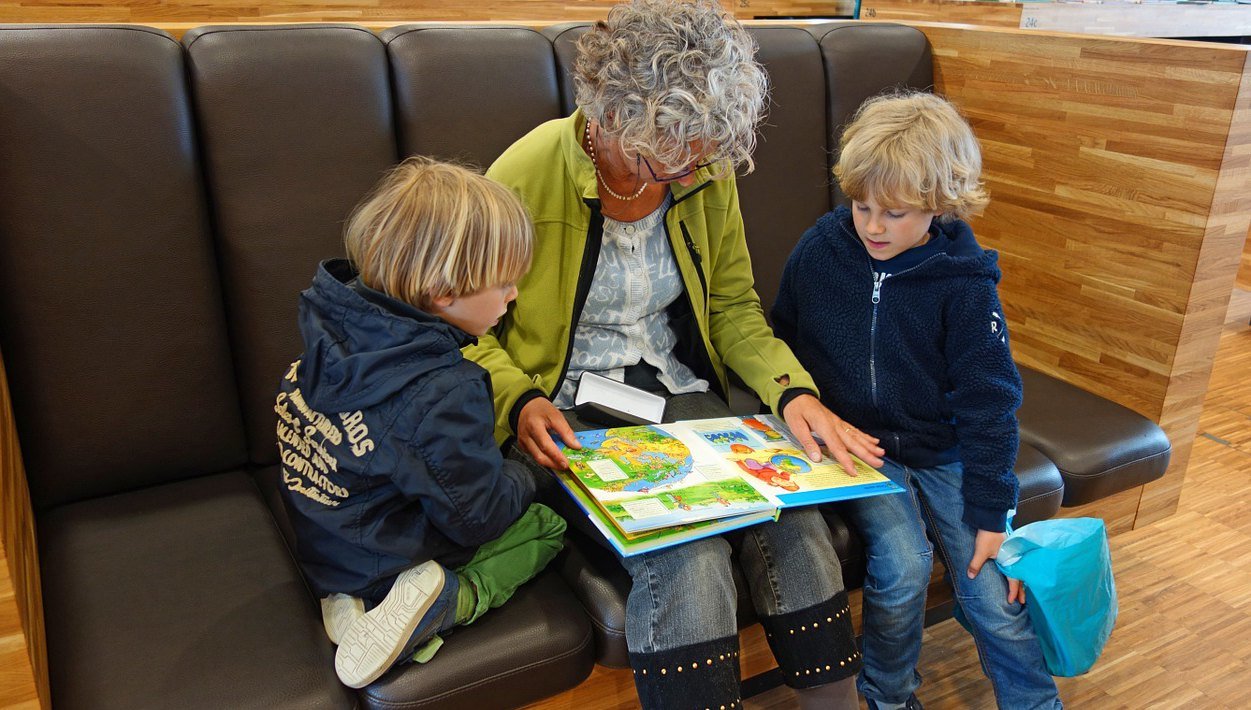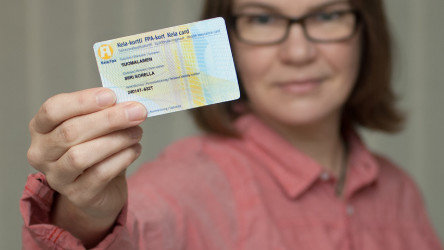The year 2019 will bring changes also to some of the key benefits provided by the Finnish Social Security (Kela). For instance they will affect to family benefits and to rehabilitation services.
The Finnish Parliament has decided that in 2019 the national pensions index will remain at the same level as in 2018. Therefore, the euro amounts of the benefits paid by Kela that are tied to the national pensions index will remain the same as last year. However, an across-the-board increase will be applied to such benefits as guarantee pensions and the minimum-rate daily allowances payable under national health insurance.
The following is a summary of the key changes in 2019 affecting the social benefits provided by Kela. They have been announced also at Kela’s webpage, though “some of the relevant laws have yet to be ratified”.
Families

Improvements in family benefits
According to the summary published by Kela, mothers raising a child on their own will become eligible for an additional 54 working days of parental allowance payments.
The relevant Act of Parliament will come into force on 1 April 2019 and applies to mothers who begin to receive parental benefits on or after that date. The extended period of eligibility is available only if no one else is entitled to a paternity allowance in respect of the child. It also applies to women adopting a child by themselves.
The rights of fathers in multiple-birth families to paternity leave and paternity allowance payments will also see improvements on 1 April 2019. Paternity allowance is paid for an additional 18 working days for each child born or adopted at the same time. However, it is payable for a maximum of 105 working days.
The minimum rate of paternal allowance and special care allowance will be increased in 2019. They will both be 27.86 euros per day (it was 24.64 euros in 2018).
The full rate of maternity, paternity or parental allowance is paid also for days on which a parent occupies a public position of trust associated with the municipal government.
Maternity allowance is paid also if pregnancy is terminated after 154 days, in which case also the father is entitled to a paternity allowance for up to 18 working days alongside the maternity leave.
Persons who have undergone female-to-male gender reassignment are eligible for a maternity allowance if they give birth. This will require an amendment of the relevant law in which the word ‘woman’ is replaced with ‘insured person’.
Rates of the child maintenance allowance increased
The full amount of the child maintenance allowance will be increased to 158.74 euros per month (it was 156.39 euros per month in 2018).
The limit for insolvency in the case of child maintenance allowance will be increased. The new limit for insolvency applicable to persons liable for maintenance is 1,120 euros per month. The income limit is raised by 280 euros per month. The 2018 amounts were 1,103.43 euros per month and 275.86 euros per month.
Kela does not provide child maintenance allowance if a child is able to support him or herself. In 2019, the limits for children’s earnings and income from capital will be increased to 784 euros per month for children living at home, and to 1,120 euros per month for children who are living independently. In 2018, these limits were 772.40 euros per month and 1,103.43 euros per month.
Increase in the amount of the adoption grant
The adoption grant provided for children placed with adoptive parents on or after 1 January 2019 is increased.
The amounts depend on the child's country of origin as follows:
- Taiwan: 9,000 euros.
- Thailand: 5,000 euros.
- Other countries: 7,000 euros.
The adoption grant provided for children identified for placement prior to 1 January 2019 is determined according to the child’s country of origin as shown below even if the child is given over to the custody of the adoptive parents after that date:
- Estonia: 1,900 euros.
- South Africa, China, Kenya and Colombia: 1,500 euros.
- The Philippines, Ethiopia and Russia: 3,800 euros.
- Other countries: 3,000 euros.
The Government is proposing a number of improvements to the rights of adoptive parents. The Act will go into effect on 1 April 2019. After that date, anyone adopting a child under 18 years of age (not including step-parent adoption) is entitled to a parental allowance.
This applies also to the right of adoptive fathers to a paternity allowance. The period for which adoptive parents can get parental allowance payments is extended to up to 233 working days starting from the date the child was placed in the custody of the adoptive parents, regardless of the child’s age at the time of adoption. Recipients of parental allowance will be able to work and continue to receive parental allowance payments.
Unemployment

Part-time pay will no longer postpone unemployment benefit payments
The rules concerning the payment of adjusted unemployment benefits will change. Income from part-time work will not affect unemployment benefits until it is actually paid.
This means that accepting an offer of part-time employment will no longer postpone unemployment benefit payments. The change is scheduled to take effect on 1 April 2019.
Improvements in unemployment coverage for family members of self-employed people
Family members of self-employed people will be able to qualify for unemployment benefits by meeting the same criteria as employees.
This new rule applies to persons who are employed in a family business but do not have ownership or controlling interest in it. A new 52-week work requirement will be introduced for these persons. After meeting the requirement, they can qualify for the unemployment allowance. The new rules will go into effect on 1 July 2019.
Fewer restrictions for unemployment benefit recipients to study for short periods
Starting 1 January 2019, unemployed jobseekers who are 25 years or over can study for a short period of time of up to six months without losing their unemployment benefit.
The course of study must be such that it will provide them with vocational skills or support their self-employment. TE Services will investigate whether these conditions are met. Such short periods of study will also count towards the activity requirement under the activation model.
New ways for unemployed persons to meet the criteria for activity
The activation model will expand to cover a number of new organisations and activities. These include municipalities, joint municipal authorities, the Finnish National Organisation of the Unemployed and its member associations, and trade unions.
Also registered associations that receive public funding can offer activities that meet the activation model criteria. The changes will take effect on 1 April 2019.
In order to be recognised as meeting the criteria, an activity must be of a kind that supports employment. The organiser must provide participants with a certificate that they can present to Kela as evidence of their participation in an activity that counts towards the criteria for activity.
Pension assistance for unemployed expanded
The pension assistance scheme for the long-term unemployed will on 1 October 2019 expand to cover also clients who were born before 1 September 1958 and who have been unemployed for an uninterrupted period of nearly five years.
To qualify for pension assistance, persons must have been eligible for labour market subsidy payments as of 31 August 2018.
The pension assistance is equal in amount to the guarantee pension (784.52 euros per month in 2019). Prior to the expansion of the scheme, pension assistance was paid to about 3,500 persons. Kela estimates the number of new recipients to be about 2,800.
Housing allowances
Maximum housing costs increased slightly
The maximum housing costs allowed under the general housing allowance scheme will be adjusted in line with the cost-of-living index.
This means that the maximum housing costs will be increased slightly at the beginning of 2019. The new maximum limits will apply to all reviews and awards of housing allowance made on or after 1 January 2019.
The other eligibility requirements for the general housing allowance are linked to the national pensions index. Because the index is currently set at a fixed value, the basic deductible that must be met before qualifying for a housing allowance will not be adjusted at the turn of the year.
Changes in the housing allowance for pensioners
The maximum housing costs taken into account in the housing allowance for pensioners will be increased by 1.8% in all three municipality categories.
The maximum housing costs are as follows:
- Category 1 municipalities, 8,243 euros per year.
- Category 2 municipalities, 7,581 euros per year.
- Category 3 municipalities, 6,651 euros per year.
The recognised monthly costs of maintenance for a single-family home will increase to 42.85 euros from 42.32 euros in 2018.
These increases will be applied in forthcoming reviews of the housing allowance for pensioners. The water and heating costs taken into account remain the same.
Pensioners

Guarantee pension and pension assistance increased
The full amount of the guarantee pension is increased by 9.25 euros, raising pension assistance by the same amount. Both will be paid at the rate of 784.52 euros per month in 2019. The national pension, which is tied to the national pensions index, will remain unchanged.
The national pension in 2019 will be the same as in 2018, or 628.85 euros per month for persons living alone and 557.79 euros for those living with a partner.
The starting pension for surviving spouses is 324.33 euros per month, and the basic amount of the continuing pension is 101.59 euros per month. The basic amount of the orphans' pension is 59.68 euros per month.
The increase available to pensioners with a dependent child under 16 years of age amounts to 21.93 euros per month.
Working while receiving a pension
It is possible to work while receiving a pension. Persons to whom Kela pays rehabilitation subsidy or disability pension can in 2019 earn up to a maximum of 784.52 euros per month.
This maximum applies even if the persons in question also receive an earnings-related pension with a higher earnings limit. In the case of self-employed persons, income under the pension laws applicable to self-employed persons or, in the absence of insurance for self-employed persons, the actual income from self-employment is taken into account.
Kela must be notified if the income limit is exceeded. In situations like this, payment of the rehabilitation subsidy or disability pension will generally be interrupted.
Students

Changes in parental income limits for student financial aid
Starting 1 January 2019, taxable income values will be used when calculating parental income under the student financial aid scheme. Because taxable income will almost always be larger than the income minus work-related expenses, the parental income limits are raised by 5–6%. This change is being made in response to the introduction of a national incomes register in 2019.
Suplementary allowance for study materials
Starting in August 2019, children of low-income families who are completing vocational qualifications or attending upper secondary school will qualify for a supplementary allowance of 46.80 euros to help them purchase study materials.
The allowance is available to students under 20 years of age living with their parents and to students under 18 years living outside the parental home whose parents have a total annual income of 41,100 euros or less. It is also available to students under 17 years of age who are eligible for the child benefit.
The supplementary allowance for the purchase of study materials is granted without application to all students already in receipt of study grant payments. Students who currently do not receive financial aid payments must apply for financial aid in the spring or summer of 2019.
Financial aid for upper secondary school students
August 2019 will also see a change to the amount of time financial aid is available to upper secondary school students per academic year. They can get financial aid for 10 months (from the beginning of August to the end of May). Kela will automatically extend the payments of upper secondary school students who currently receive financial aid.
Tax-exempt grants and scholarships paid on or after 1 January 2019 will no longer count as income for purposes of student financial aid. However, taxable grants and scholarships will continue to affect students’ eligibility for financial aid.
Starting August 2019, parental income will no longer affect the basic amount or housing supplement available under the study grant scheme for students under 18 who do not live with their parents.
Health

Employers contributions to national health insurance decreased
Employers pay a contribution to national health insurance in 2019 which is equal to 0.77% of their total payroll expenses (down from 0.86% in 2018). This is a decrease of 0.09 percentage points.
In 2019, insured wage and salary earners are charged a contribution of 1.54% of their pay towards daily allowances (1.53% in 2018). Self-employed persons insured under MYEL (the Farmers' Pension Insurance scheme) pay 1.54% of their earned income
Self-employed persons insured under the Self-Employed Persons’ Pensions Act are levied both a contribution towards daily allowances and an additional contribution, which at 0.23% is 0.06 percentage points higher than in 2018. This increase is due to the curtailment of the waiting period that self-employed persons must complete to qualify for the sickness allowance from three days to one day.
No contributions are payable if the total annual amount of wage, salary and self-employment income is less than 14,282 euros.
Wage and salary earners and self-employed persons are not liable for contributions towards medical care insurance in 2019. The contribution towards medical care insurance collected from pension and benefit income is increased by 0.08 percentage points to 1.61% (from 1.53% in 2018). It is included in each pension and benefit recipient's tax withholding rate.
Lower annual limit on out-of-pocket prescription costs
The annual limit on out-of-pocket prescription costs will be reduced by more than 30 euros next year, to 572 euros per calendar year. Once they reach the annual limit, customers only pay a 2.50 euros copayment for each reimbursable medicine for the rest of the year.
Increase in sickness and rehabilitation allowances
The minimum amount of sickness allowance, rehabilitation allowance and special care allowance will be increased by 3 euros per day. The new minimum amount is 27,86 euros per working day.
In 2019, the minimum amount of rehabilitation allowance for young people and the minimum amount of rehabilitation allowance paid during vocational rehabilitation will be 31.39 euros per working day (31.02 euros per working day in 2018).
All allowances already in payment will be adjusted automatically.
Qualifying period for the sickness allowance abolished
Payments of the sickness allowance will no longer be conditional on completing a 55-day qualifying period. Starting 1 January 2019, sickness allowance will be paid at the minimum rate of 27.86 euros per working day after completion of a waiting period (1 + 9 days).
Easier access to vocational rehabilitation for young persons
A doctor’s statement is no longer a requirement for access to vocational rehabilitation for young persons between 16 and 19 who are not in school or in employment, or who have interrupted their studies or are at risk of doing so.
A functional capacity assessment can be made by social service, outreach youth service or Guidance Centre staff. Also healthcare providers can continue to refer young persons to rehabilitation services. Kela now also accepts verbal applications to rehabilitation.
No changes in disability allowances
Disability allowances for persons under the age of 16 and those aged 16 or over remain unchanged. The rates of the disability allowances are: basic rate, 92.14 euros per month; increased rate, 215 euros per month; and highest rate, 416.91 euros per month.
Also the care allowance for pensioners is unchanged. Its basic rate is 70.52 euros per month, increased rate 153.63 euros per month and highest rate 324.85 euros per month.
The disability supplement for war veterans will remain unchanged.
Other benefits

Increase in the basic amount of social assistance
The basic amount of social assistance will be increased in 2019. It will be 497.29 euros per month for persons living alone.
Basic social assistance is a benefit of last resort. The increase will secure the level of basic social assistance although most benefits that are tied to the national pensions index will remain at the same level as in 2018.
The basic income experiment ends
The two-year basic income experiment ended as scheduled on 31 December 2018. The last payments were made in December.
The basic income experiment was launched on 1 January 2017. In the experiment, 2,000 randomly selected unemployed persons were paid a monthly basic income of 560 euros regardless of any other income they may have had or whether they were looking for work. The basic income was an unconditional benefit that was not reduced by other benefits or earnings.
The results of the experiment will now be evaluated. The information gained will support efforts to modernise the social security system. Results will become available during 2019 and 2020. The first results will be released early in 2019.
Social security provisions governing cross-border situations
Persons arriving in Finland for employment purposes are entitled to social benefits for the duration of their employment, provided that their earnings are equal to or higher than the basic unemployment allowance (696.60 euros per month).
The time limit on temporary residence outside Finland is reduced from one year to six months. Persons residing abroad temporarily are as a general rule entitled to benefits if the expected duration of their residence abroad is six months or less. The changes will go into effect on 1 April 2019.












